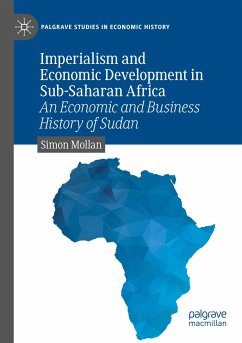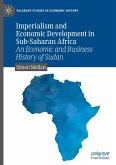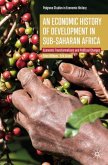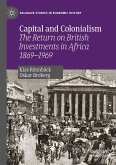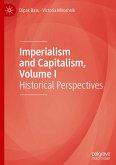This book examines the economic and business history of Sudan, placing Sudan into the wider context of the impact of imperialism on economic development in sub-Saharan Africa. From the 1870s onwards British interest(s) in Sudan began to intensify, a consequence of the opening of the Suez Canal in 1869 and the overseas expansion of British business activities associated with the Scramble for Africa and the renewal of imperial impulses in the second half of the nineteenth century. Mollan shows the gradual economic embrace of imperialism in the years before 1899; the impact of imperialism on the economic development of colonial Sudan to 1956; and then the post-colonial economic legacy of imperialism into the 1970s.
This text highlights how state-centred economic activity was developed in cooperation with British international business. Founded on an economic model that was debt-driven, capital intensive, and cash-crop oriented-the colonial economy of Sudan was centred oncotton growing. This model locked Sudan into a particular developmental path that, in turn, contributed to the nature and timing of decolonization, and the consequent structures of dependency in the post-colonial era.
This text highlights how state-centred economic activity was developed in cooperation with British international business. Founded on an economic model that was debt-driven, capital intensive, and cash-crop oriented-the colonial economy of Sudan was centred oncotton growing. This model locked Sudan into a particular developmental path that, in turn, contributed to the nature and timing of decolonization, and the consequent structures of dependency in the post-colonial era.

